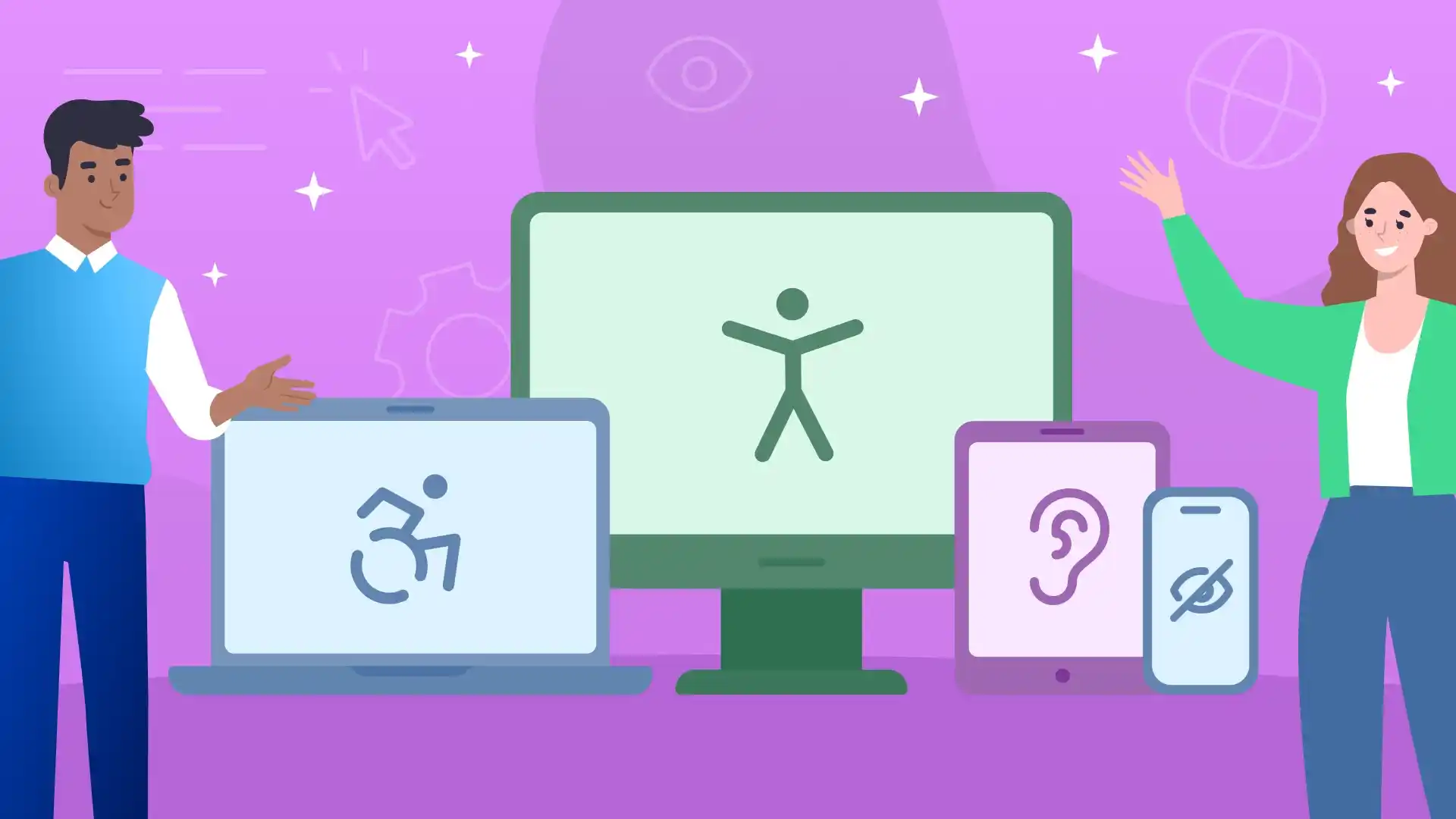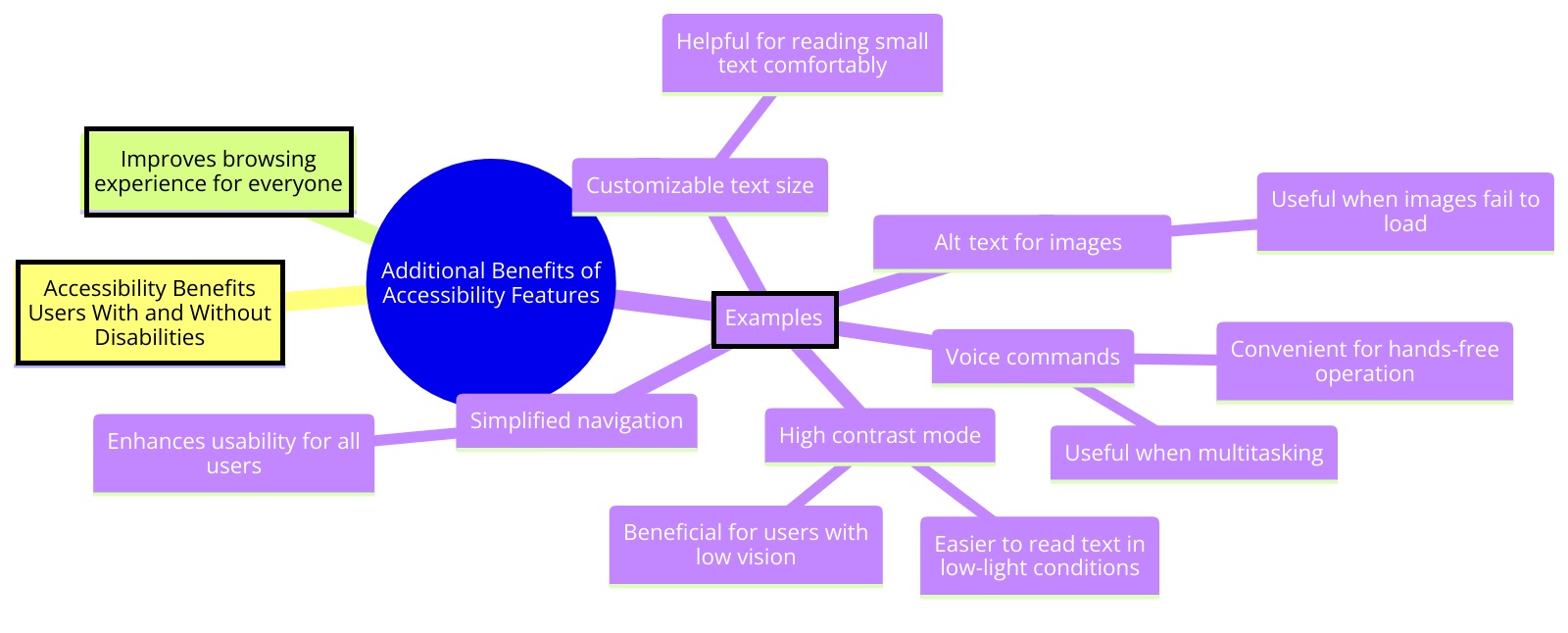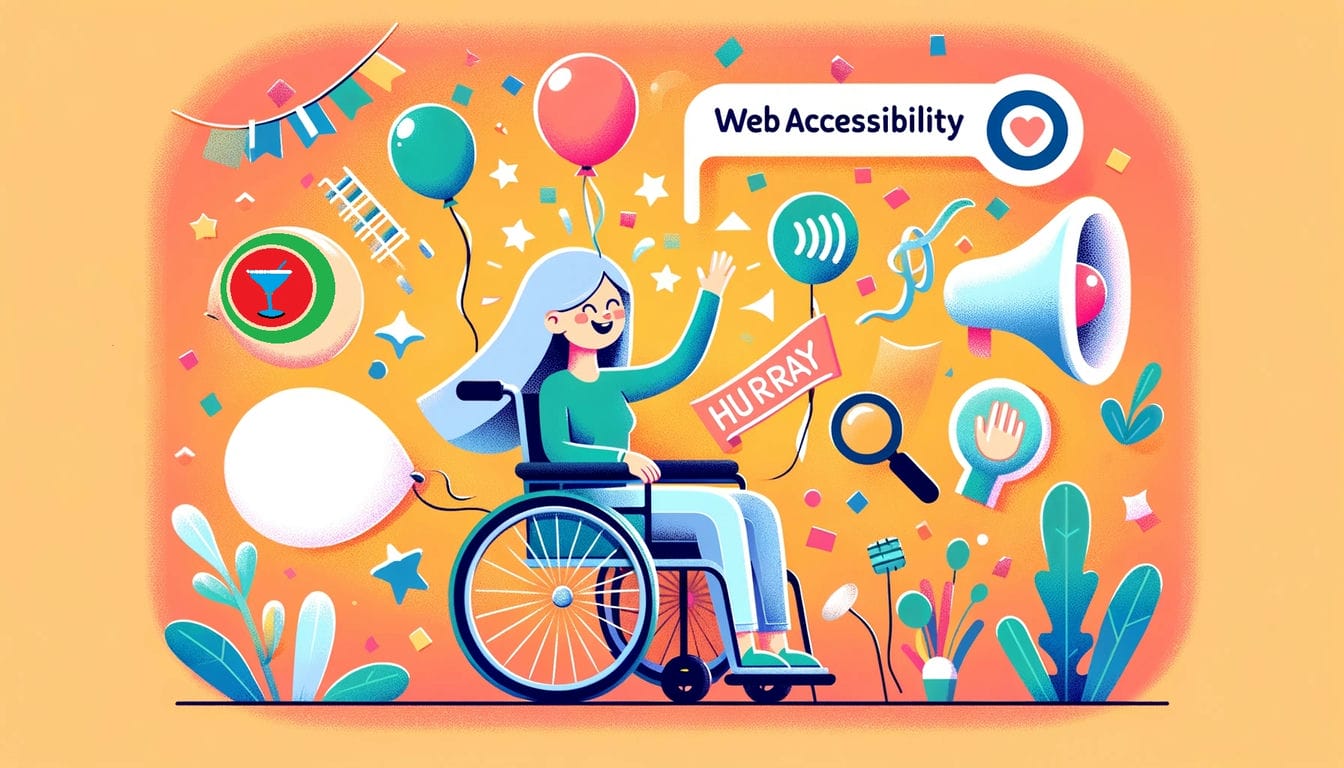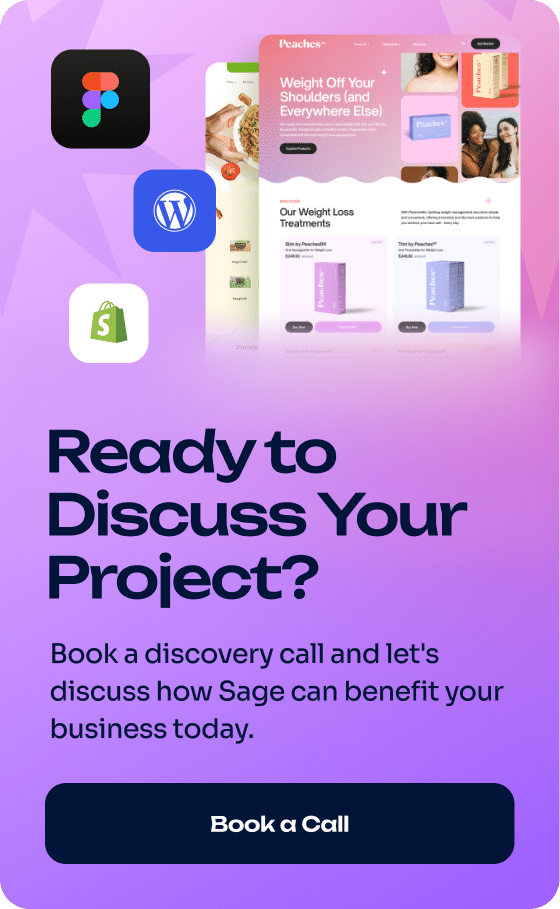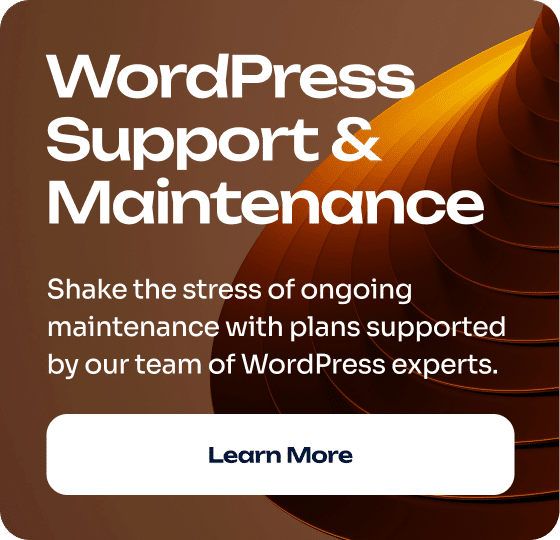Why Is Web Accessibility Important?
Today, we rely on the internet for communication, information, services, and much more. However, did you know approximately 27% of adults in the United States alone face barriers when websites are not designed with accessibility in mind?
For individuals with certain disabilities, such as visual impairments and hearing loss, navigating inaccessible websites can be a difficult and frustrating experience.
This is why web accessibility is important and beneficial when building a website. ✅
ADA Compliance Matters:
Guidelines for inclusive web design exist so that everyone can use and enjoy the web. Making websites ADA-compliant is a big step towards equality online.
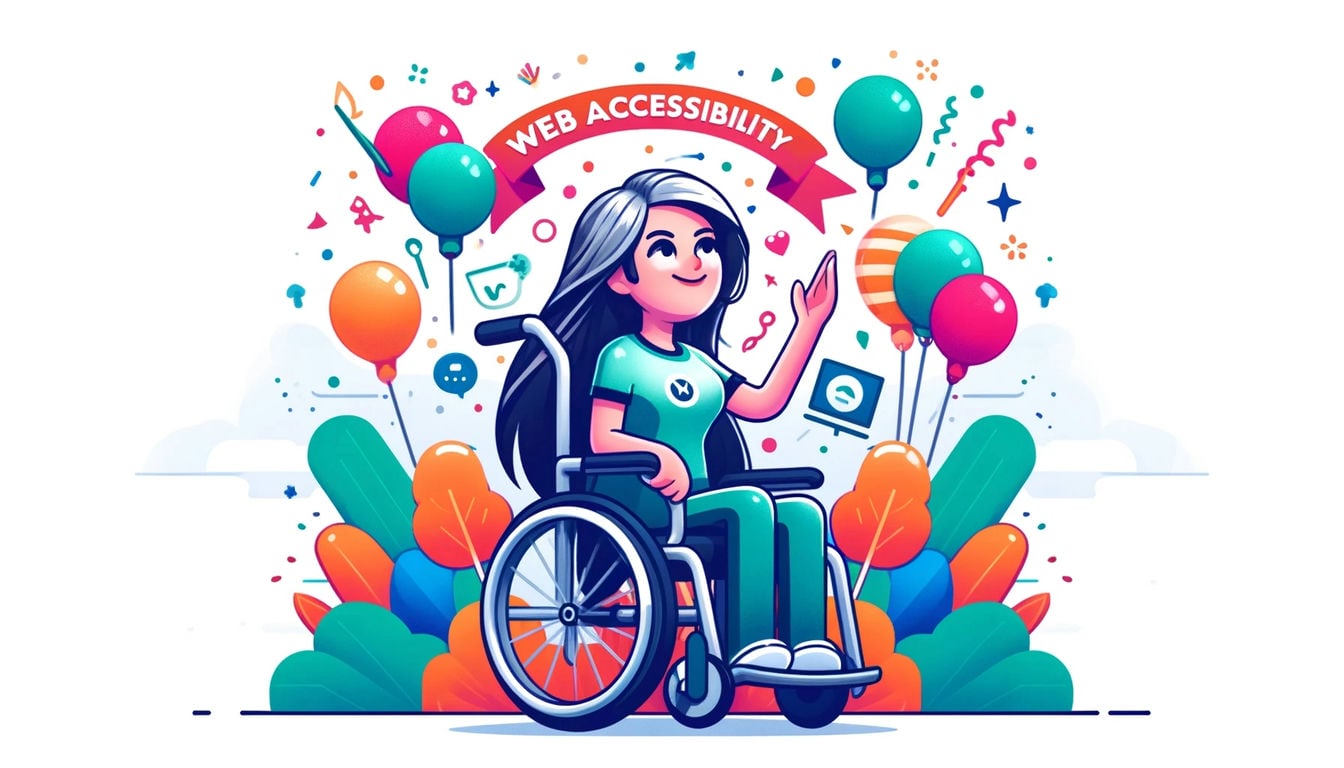
Advantages of Prioritizing Web Accessibility
- Aligns with the WCAG.
- Serves a wider audience.
- Enhances the user experience for all visitors, regardless of their abilities.
- Saves on long-term costs (Implementing accessibility from the start is more cost-effective than retrofitting an existing website.)
Keep reading to learn more about web accessibility.
Web Accessibility Welcomes More Users
At the end of the day, websites are designed to offer a service. To do this effectively, they need to be welcoming to users and easy to use.
Welcoming vs. Unwelcoming
An accessible website is a welcoming website. By contrast, a website that misses the mark on accessibility might come across as exclusive or unwelcoming.
Web designers almost never make a website unwelcoming on purpose. It’s generally just an issue of trying to meet deadlines.
Website owners, meanwhile, are often very busy managing multiple aspects of their business and can’t pay attention to every small detail on their website.
The Problem:
Usually, what happens is that accessibility considerations are overlooked or pushed to the bottom of the priority list. The problem is that an inaccessible website can inadvertently exclude potential customers.
The Solution:
A web designer who understands accessibility can solve this problem.
Disabilities Are Common, But Accessibility Puts The Customer First
About 16% of the global population and 26% of people in the U.S. face disabilities. That’s over 1 billion people worldwide and 86 million in the United States.
Making your website accessible means you:
- Reach this often-overlooked portion of your audience.
- Do right by these potential customers and increase your chances of winning their loyalty.
Customers Always Come First
As reported by Inc., Jezz Bezos once said, “The most important single thing is to focus obsessively on the customer.”
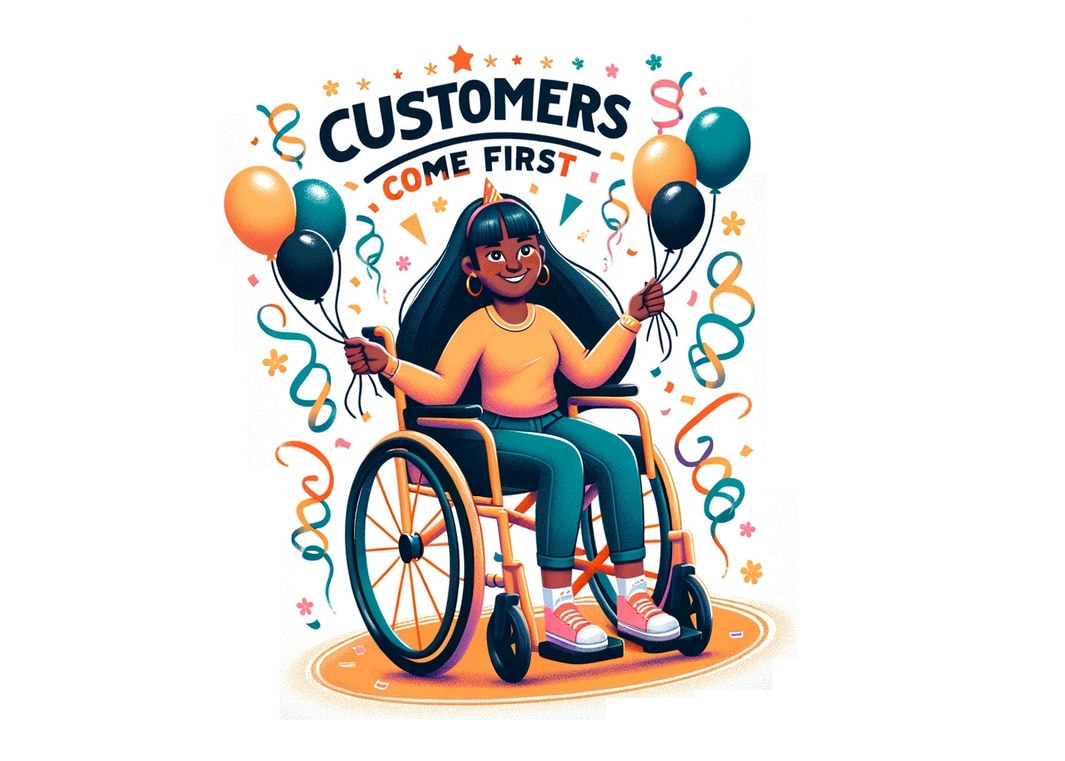
Prioritizing web accessibility puts the focus on the customer. It’s the right thing to do AND a wise business decision. The two aren’t mutually exclusive.
Accessibility Benefits Users With and Without Disabilities
Web accessibility helps users with disabilities, but it also improves the browsing experience for other users as well.
For instance, web accessibility features often include:
- An easy login process for all users, making it simpler and faster to access the site.
- Good color contrast that aids in text legibility.
- Text read aloud when you want to hear the content.
- Use of the keyboard to navigate the website when the mouse isn’t working.
- Adjusted screen brightness to accommodate a dark or bright room.
» MORE: Learn more about the importance and benefits of web accessibility on UNCG’s website.
Benefits of Web Accessibility Mind Map
Click the image to expand
Web Accessibility Is A Legal and Ethical Necessity
Web accessibility is often a legal and ethical necessity, as failing to meet web content accessibility guidelines can lead to lawsuits and other issues.
This is especially true for colleges and universities, where they risk losing financial support if they don’t make their content accessible.
It’ll Likely Be OK For The Average Business:
The story is a bit different for the average business website. You probably won’t get sued if you miss some components of web accessibility, but accessible websites often rank higher in search engine results.
There is certainly an incentive to keep your website compliant.
Avoiding Potential Legal Consequences of Inaccessible Websites
With that said, anything is possible in a litigious society fueled by social media. Compliance with accessibility standards can help avoid lawsuits under the Americans with Disabilities Act (ADA).
Disclaimer: This is not legal advice.
Reducing Maintenance Costs and Future-Proofing Your Website
Thinking about accessibility early saves time and money. After all, it costs less to make a site accessible at the beginning than to redesign it later.
Specific items that should be looked at include:
- Color contrast and readability.
- Keyboard navigation and focus indicators.
- Alt text for images and descriptive links.
- Captioning and transcripts for videos and audio.
- Semantic HTML structure and headings.
- Form labels and error messages.
Why Web Accessibility is Important – Conclusion
Today, with over a billion people globally and 86 million in the U.S. facing disabilities, not having an accessible website means you risk losing money.
The Bottom Line: Investing in web accessibility is a good idea. An accessible website offers a better user experience, serves a wider audience, reduces legal risks, and more. While it requires ongoing effort, accessibility gives businesses a competitive edge.
PS If you need help making your website accessible, the Web Content Accessibility Guidelines (WCAG) from the W3C will help. These guidelines focus on making websites perceivable, operable, understandable, and robust.
You can also connect with our team to find out how we can help you improve your website.


